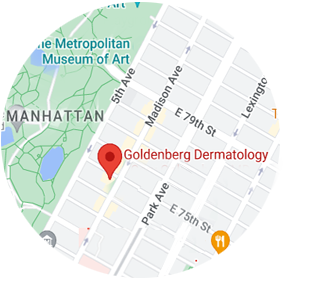PRP Hair Loss Treatments: Myth or Miracle?
Clinical Studies Show PRP Hair Loss Treatments Work–
PRP (“platelet-rich plasma”) hair restoration is a newer, 100% natural, non-surgical hair loss treatment. With PRP having been featured recently in many well publicized cosmetic treatments – including the so-called “Vampire Facials” seen on social media – many patients are left wondering if PRP for hair loss really works.
In this article, Manhattan dermatologist and hair loss expert Dr. Gary Goldenberg shares the results of some recent clinical studies that have proven that PRPs effectiveness is not a myth, and that PRP is indeed the actual “miracle” hair-loss treatment many have been waiting for.
2014 PRP Hair Loss Treatment Study
While PRP Hair Loss Treatments have only recently made the news and begun to pop up on social media, platelet-rich plasma hair restoration has been the subject of clinical studies for at least five years.
In the April-June 2014 issue of Journal of Cutaneous and Aesthetic Surgery an article entitled “Platelet-Rich Plasma in Androgenic Alopecia” studied the effectiveness of PRP treating male pattern.
First, it should be noted that while Androgenic Alopecia is also sometimes called “male pattern baldness”, it is actually a very common type of hair loss found in both men and women.
In that clinical study (conducted between August 2013 and November 2013) patients with androgenic alopecia who had used topical minoxidil and finasteride for at least 6 months without improvement were given PRP hair loss treatments.
During the study a significant reduction in hair loss was observed between the patient’s first and fourth PRP injections. In fact the average patient’s hair count increased from 71 hair follicles to 93 hair follicles per square centimeter of scalp. That means there was an average gain of 22 follicles per cm2 – a 30 percent increase!
The conclusion of that clinical study stated that “PRP… is a simple, cost effective and feasible treatment option for androgenic alopecia, with high overall patient satisfaction.”
2014 PRP Hair Loss Treatment Study
In the March 2019 issue of the Journal of the American Academy of Dermatology another study was recently published entitled: “Treatment of male pattern alopecia with platelet-rich plasma: A double-blind controlled study with analysis of platelet number and growth factor levels.”
In that clinical study, 13 patients were given four scalp injections of PRP, while a “control” group of a different 13 patients were given plain saline (salt water) scalp injections. The percentage of patient’s hairs were then evaluated before injection, 15 days after the final injection, and again 3 months after the last injection.
The results of that study demonstrated a significant increase in hair count, hair density, and percentage of hairs in the PRP group – while the control group who received salt-water injections did not experience any hair increase.
That study reported “promising results with platelet-rich plasma (PRP) in androgenetic alopecia” that could be associated with PRP. They concluded that the resulting data favored the use of PRP as a therapeutic treatment of androgenetic alopecia.
PRP Hair Loss Treatments – Manhattan
These and many other clinical studies prove that all the “hype” surrounding PRP Hair Loss Treatments is actually grounded in firm scientific proof. At our Manhattan dermatology office, we are among very few physicians in New York or on the east coast offering this innovative, 100% natural hair loss treatment.
If you are experiencing thinning hair or hair loss, the dermatologists at Goldenberg dermatology can help you restore a full, healthy head of hair with affordable, non-surgical PRP hair loss treatments, as well as other state-of-the-art hair restoration procedures including and stem cell therapy.
At our Manhattan dermatology office, we also offer highly effective hair restoration nutritional supplements, shampoos and lotions that can be used in conjunction with PRP hair loss treatment.
Call us today and schedule an appointment at our Manhattan office to see which hair restoration treatments are right for you.












Leave a Reply
Want to join the discussion?Feel free to contribute!